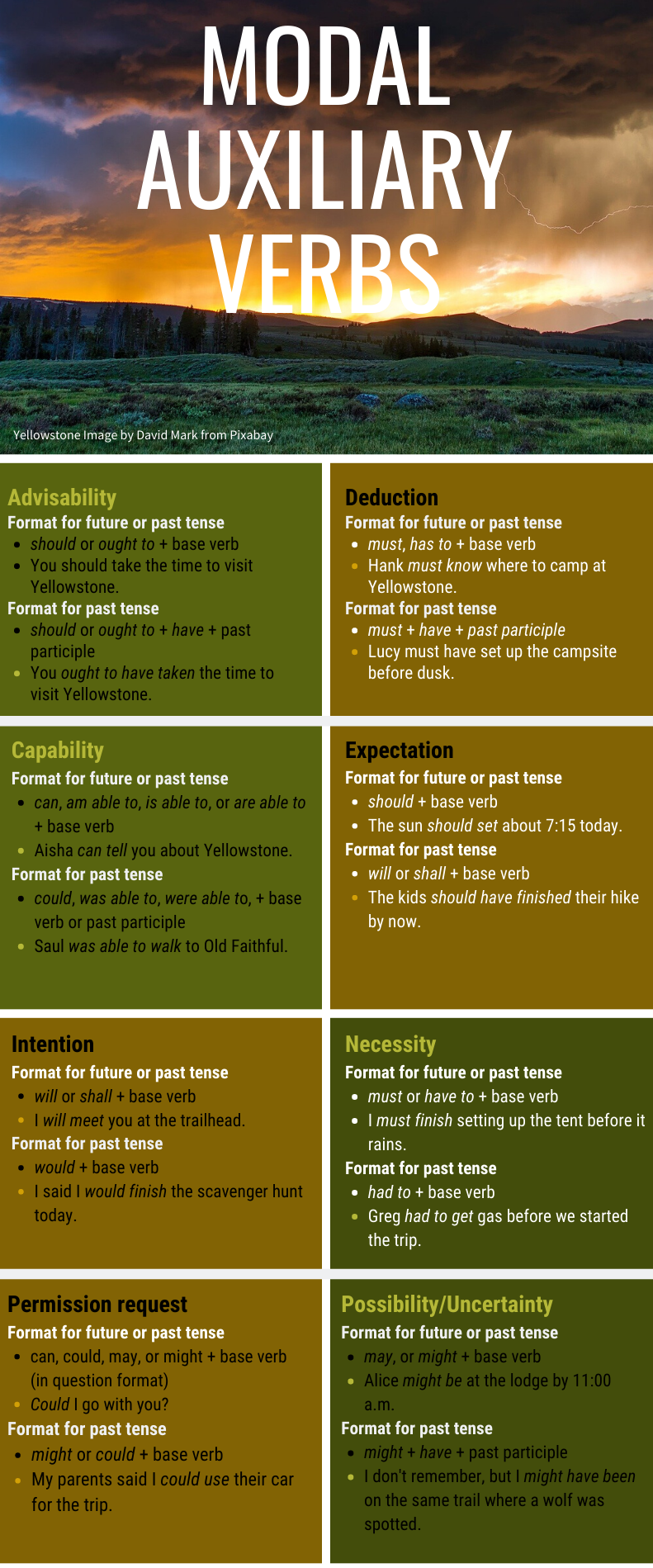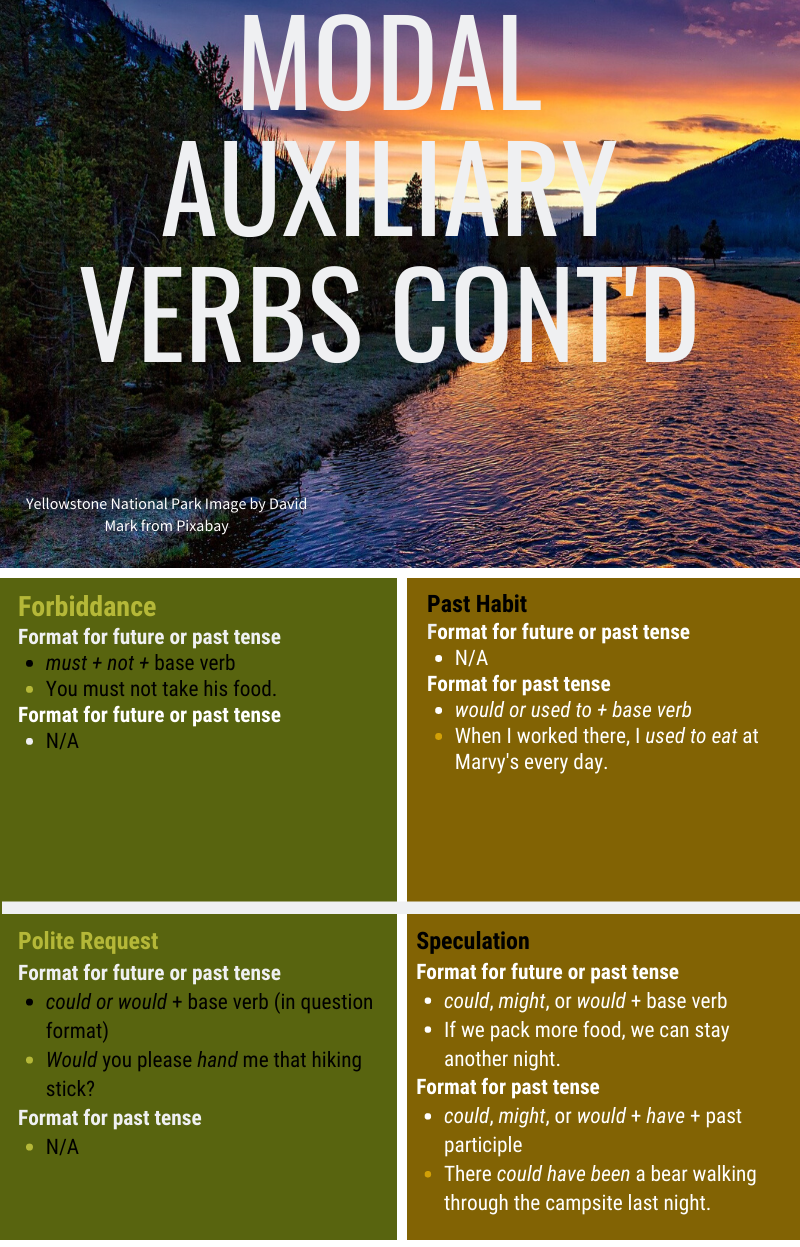The English language includes nine main modal auxiliary verbs that are used with other verbs. These modals, shown in the wheel in four pairs and a single, can refer to past, present, or future tense based on the verbs that are used with them. The modals themselves do not change form to change tense. As shown in the following table, you can use modals to express an attitude in regard to the action or general situation of the sentence.


Adapted from Appendix A, “Writing for Nonnative English Speakers” in Writer’s Handbook v 1.0 used according to Creative Commons CC BY-NC-SA 3.0